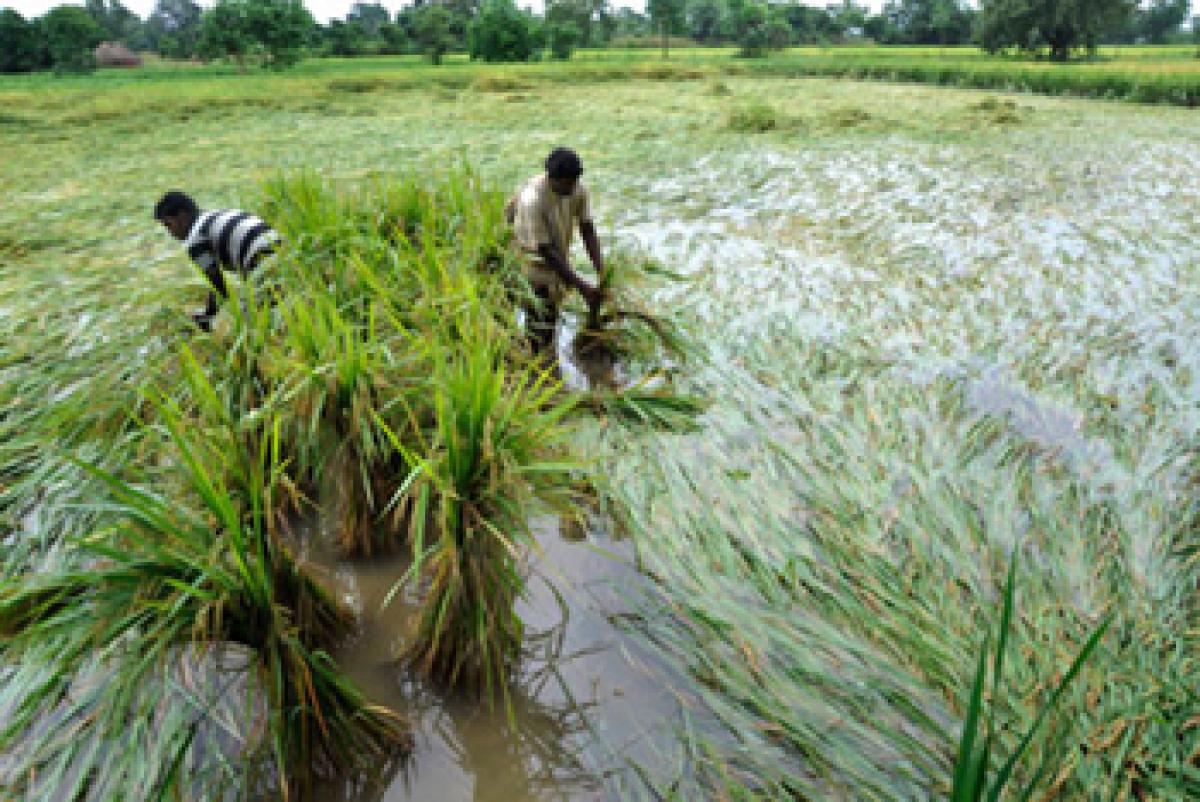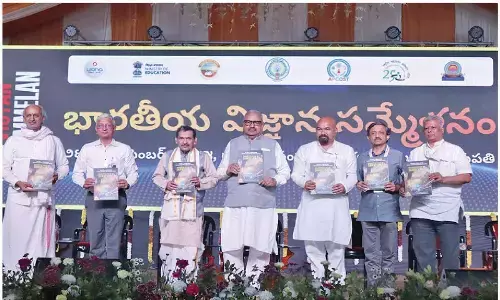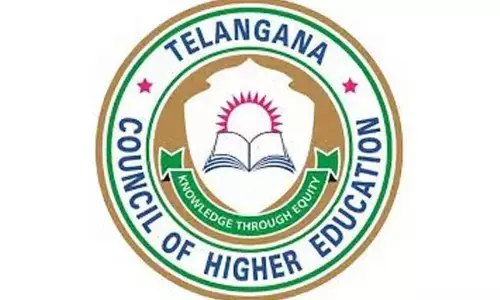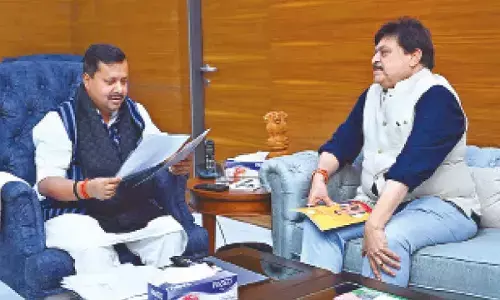A case for special package, too

A case for special package, too. The news of Prime Minister Narendra Modi’s election eve bonanza of Rs 1.25 lakh crore to Bihar has obviously infuriated the people of Andhra Pradesh who are clamouring for a special status.
.jpg) The news of Prime Minister Narendra Modi’s election eve bonanza of Rs 1.25 lakh crore to Bihar has obviously infuriated the people of Andhra Pradesh who are clamouring for a special status. The BJP leadership has been prevaricating on the promise of special status, and often talks of a special package that shall be better than the special status. Whatever may be the veracity of the claim, the NDA should answer a basic question.
The news of Prime Minister Narendra Modi’s election eve bonanza of Rs 1.25 lakh crore to Bihar has obviously infuriated the people of Andhra Pradesh who are clamouring for a special status. The BJP leadership has been prevaricating on the promise of special status, and often talks of a special package that shall be better than the special status. Whatever may be the veracity of the claim, the NDA should answer a basic question.
How can a special package for Bihar precede any such announcement for Andhra Pradesh?
The special status and the special package are near statutory obligations on the central government. But, electoral expediency seems to have prevailed over fulfilling parliamentary assurances and legal commitments. The Government of Andhra Pradesh should make a strong case for a better special package to it as the special status is still elusive.
The fiscal woes of Bihar are the result of political bankruptcy and policy paralysis of successive governments. But, the grievance of Andhra Pradesh stems out of bifurcation of the State imposed on the Seemandhra people by Parliament against their wishes. Other than the political exigencies and electoral propaganda-induced necessity, there is no statutory obligation for the Centre to come forward with such a massive package for Bihar.
The way Modi announced the package reveals how politics dictate central assistance to States rather than any statutory or policy basis. But, all kinds of legal and semi-legal arguments are advanced to deny the special status to Andhra Pradesh like the recommendations of 14th Finance Commission and scrapping of the Planning Commission which authors the special status etc.
Last week in these columns, we exposed the bankrupt politics that deny the State of Andhra Pradesh its genuine rights. Even if one looks at the political backdrop, the promises of special status and special package are the election eve promises, too, by Modi and his team. In fact, Nitish Kumar would gain if he popularises the politics of denial for Andhra Pradesh to counter Modi’s allurements to the Bihar electorate.
The White Paper on Impact of State Reorganisation, released by the Chandrababu Naidu government in which BJP is also a partner, states that a number of contradictions, omissions, commissions and inadequacies embedded in the Andhra Pradesh Reorganisation Act 2014 are having an adverse impact on the health and well-being of both successor States.
The report further says, “The Act, by its conception and content, has created disequilibrium, with negative consequences to the residuary Andhra Pradesh.” In fact BJP also shares this opinion which is evident from the Parliamentary debates on the Reorganisation Act and subsequent statements by the State BJP leadership before and after the elections.
The Article 4 of the Constitution allows for supplemental, incidental and consequential measures to tide over the exigencies created by bifurcation of the State as per the Article 3 of the Constitution of India. Several Supreme Court judgments upheld this constitutional position. Therefore, the central government is constitutionally obliged to correct this ‘disequilibrium’ created by an act of Parliament.
Non-viable nature of state finances is one of the criteria for granting the special status, along with low population density, greater proportion of tribal population, low resource base, strategic location, hilly terrain etc. The Andhra Pradesh government feels that the State suffers from the bifurcation-induced fiscal stress that needs to be corrected through the special status and special packages.
The White Paper on the impact of bifurcation states, “A diligent analysis of the potential revenue receipts and expenditure for the 2014-15 financial year and the subsequent years indicate that the residuary Andhra Pradesh is likely to face monumental fiscal challenges. The total revenue receipts, including the State’s own revenue, Central taxes devolution, grants and market borrowings are likely to be less than fifty per cent of the united State.
However, on the expenditure side, due to the allocation of debt, salaries, pensions and subsidies based on population ratio, the residuary State of AP will have nearly sixty per cent of the united Andhra Pradesh expenditure.” The expenditure on salaries and pensions in the new State of Andhra Pradesh will be around 73% of its own revenues, a steep increase from 58% in the combined State, leaving little scope for developmental expenditure.
Not just on the fiscal situation, the Government of Andhra Pradesh feels that the bifurcation has adversely affected its economic activities including agriculture. For instance, the reorganisation has seriously affected the paddy seed production and processing capacity that is essential for sustaining and accelerating agricultural production and increasing productivity to ensure food security not only for the people of Andhra Pradesh, but also for the rest of India.
The geography of Andhra Pradesh is both an asset and a liability for the State. The State has 974 km of coast line. This can be harnessed to develop the State as a logistics hub. This is precisely what the new State can learn from countries like Singapore. But, the same geography can impact otherwise, too, as the State coast line is vulnerable to disasters like cyclones and floods.
According to the estimates of Andhra Pradesh government, during the period from 2008-09 to 2013-14, of the 20.18 lakh hectares of agricultural land affected by natural calamities in the united Andhra Pradesh, 15.16-lakh hectares, i.e., more than seventy five per cent, were in the thirteen districts of residuary Andhra Pradesh. The State desperately needs central help to face this disaster profile.
In the first year of the post-bifurcation period itself, the northern coast of the State faced devastating cyclone and the response from the Centre was lukewarm. The poor infrastructure, apart from the fiscal stress, can be a justification for demanding special packages. In fact, Bihar justifies such a package on similar grounds.
The White Paper on Industry, Infrastructure and Employment states, “The bifurcation of Andhra Pradesh has compounded the problems of the residuary State as it is now not only a revenue deficit State but is also without adequate industrial base as well as physical, social and educational infrastructure.”
The Raghuram Rajan Committee (2013), intended to capture the real picture of underdevelopment in different States based on different underdevelopment indicators such as monthly per capita consumption expenditure, education, health, household amenities, poverty rate, female literacy, percentage of SC/ST population, urbanisation rate, financial inclusion and connectivity, categorised the united Andhra Pradesh State as a less developed State.
The bifurcation further compounds the problem. This is precisely the reason the State Reorganisation Act explicitly makes promises to ensure central assistance to the successor states of Andhra Pradesh and Telangana.
Instead of acting on this legal obligation, the Centre responds with remarkable alacrity in regard to Bihar. While Bihar is demanding special status, the Centre came forward with a special package. But, in the case of Andhra Pradesh, any special package cannot be in lieu of special status but in addition to that.
Woman injured in stabbing attack in Tokyo, suspect at large
Bengal cop booked for murder over mysterious death of woman home guard, SIT to probe case
Staffer recalls horror of 7-kg gold robbery by armed gang in Karnataka’s Hunsur
25-Year-Old Airline Cabin Crew Member Dies At Gurugram Party; Police Begin Investigation














